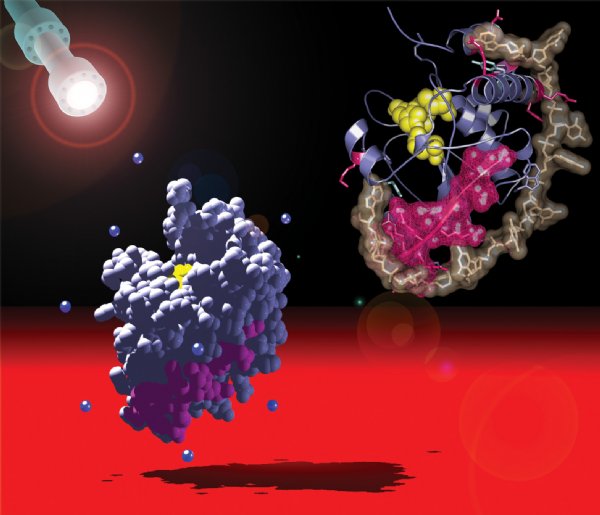|
This year's Nobel Prize in medicine has been awarded to three researchers investigating the so-called “immortality enzyme,” which permits unlimited cell replication. The enzyme is telomerase, which affects telomeres, the ends of the chromosomes. 
The chromosomes are the genetic material of the cell, made of DNA. They contain the code which instructs the cell how to replicate itself and carry out the functions necessary for its survival. Each time the cell divides, the chromosomes replicate, with one set going to each of the two new daughter cells. However, many cells have an inherent limit on division. This is due to the telomeres, chains of DNA on the end of each chromosome, much like the plastic coating on the end of a shoelace. The telomeres protect the chromosomes from getting frayed or tangled together. However, with each cell division the telomeres get shorter and shorter, and eventually, the cell can no longer divide any further.
However, some cells have an enzyme called telomerase, which restores the telomeres to the end of the chromosomes. Cancer cells have the enzyme telomerase, which explains their out-of-control growth.
Telomerase was discovered a decade ago, and became a subject of intense scientific speculation. American researchers Elizabeth Blackburn, Carol Greider and Jack Szostak were awarded a Nobel Prize for their work on telomerase. The discovery of this enzyme shows signs of being a huge breakthrough for medicine. Inhibiting telomerase in cancer cells can slow their catastrophic growth. But researchers are also seeking to use this enzyme to stimulate growth in cells that have stopped growing, such as in degenerative diseases. Restoration of tissue may become a lot easier in cases of major tissue loss. Particular areas of the body such as nerve and spine cells are particularly vulnerable to damage and are resistant to growth. Learning how to introduce telomerase to stimulate nerve growth can hold the secret for immortality.
This means that in essence, the eternal life promised in all the prophecies of redemption may possibly happen through strictly biological means. There is a growing body of scientific support for the fulfillment of these Messianic prophecies, which until recently seemed to be completely mystical and unrealistic.
The talks of the Lubavitcher Rebbe often refer to the concept of eternal life. The Rebbe believed in eternal life according to the terms of the Zohar, meaning that he did not perceive of eternal life in some ethereal sense in Heaven, but rather as souls in physical bodies, here on earth!
One of the Rebbe's most surprising and innovative statements is that we, members of this generation, will experience the transition from the transitory life of exile to the eternal life of redemption - with no interruption in between. Whether this prophecy will materialize through purely biological means remains to be seen - and we will be alive to see it.
Prof. Yirmiyahu Branover is chairman of the Center of Magnetohydrodynamic Studies and Training at Ben-Gurion University.
|

